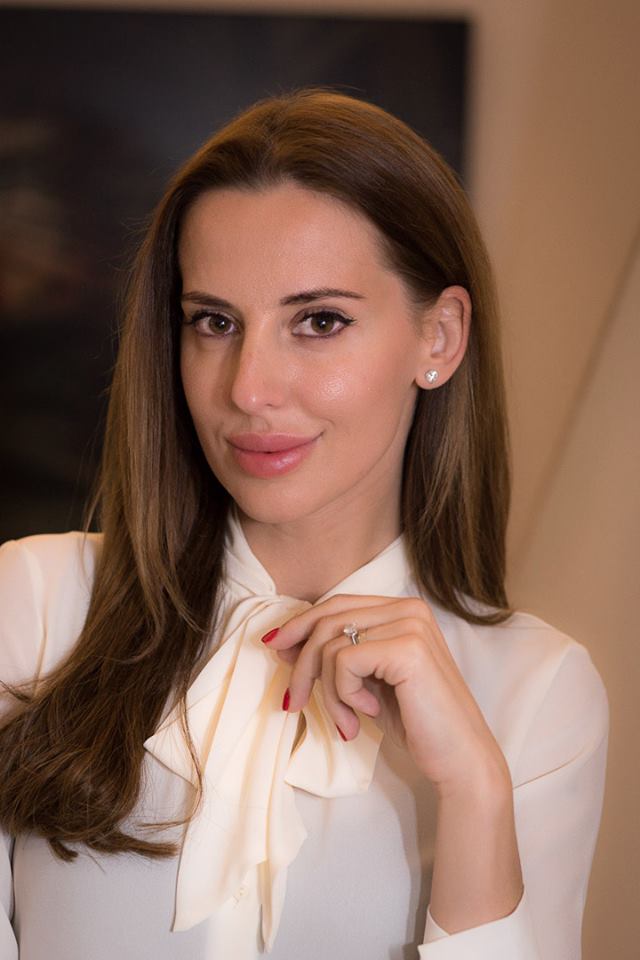Jaanika Merilo is the first (and dare we say not the last!) female member of EstBAN. With a background in IT and asset management she currently runs her own investment company Aida Invest and is thinking about putting together a fund for early stage investments.
Jaanika was interviewed by Marek Unt from JLP Communications Agency.
You started your career in IT, programming for Olivetti, and later founded your own IT company that provided services for Arvopaperi, Nokia and Microsoft. When did you make the leap to investment management?
In 2000 Arvopaperi made me an offer I could not refuse and I moved to Finland as their CIO and developing markets analyst. Later, in 2004, I moved to the position of investment manager at Martinson Trigon Venture Partners and later founded the Estonian Investor Association where I had the chance to see the birth of the Estonian Development Fund. From 2008 to 2012 I worked with Urmas Sõõrumaa where I was responsible for his direct investments mainly in Russia and Ukraine.
Now you have set up your own consultancy boutique, Aida Invest.
Yes, I’ve gone back to my roots – investing in seed and early stage companies in the Baltics and hopefully in the near future in Ukraine and consulting for some private investors.
To give you some background information, I’ve walked around for 4 years already, complaining that there are no funds that would invest in growth. Even when startups step out of incubators and accelerators they face the question of finding an investor. Who do they turn to? The banks are not an option. The Estonian Development Fund is more focused on companies with high innovation and export potential. Private investors are not that active. So there’s a market gap to fund potentially strong early stage companies and around the world business angels often fill that gap.
We’ve heard that you have been considering filling this gap with a specific fund. Is that true?
Everybody I talk to agrees that a fund for seed and early stage companies is really needed, but so far no-one has taken action. For big funds it makes no point as the management fees are too small and the approach is much too hands-on. So I have been talking to different market players on whether there would be interest to syndicate a smaller fund.
While most of the Estonian angels see the gap and the opportunity, they are still far from syndicating in one fund. The liquidity is limited, investors prefer to make their own direct investments and syndicating even between a few investors is rare. The Nordic investors are rather more interested. Let’s see.

You have a unique insight into the investing landscape of our Eastern neighbors. What is the current status in Russia?
I would say in early stage tech financing Russia is experiencing a bubble. Almost everyone has discovered the word “startup”. Nobody’s really sure what kind of beast they’re dealing with, but it sure seems interesting and cool. There are a lot of accelerators and VC funds, some are trying to take globally successful formats and localize them for Russia. The attitude in Russia towards startups reminds me of a quote from “Citizen Kane”: “I think it would be fun to run a newspaper.”
How would you describe the Ukrainian startup scene?
Compared to Estonia, seed and early stage financing is just starting out. There are 3-4 incubators, some venture capital funds and big private equity funds. There is the same lack of growth financing, or even bigger, as the banks are really not keen on financing SMEs. If they are occasionally surprisingly interested then it’s usually with totally unreasonable conditions attached. You just can’t finance early stage growth with high interest rates and full guarantees. The SME field needs success stories to motivate people to really consider entrepreneurship as an attractive option. Of course besides this we need more favorable legislation, transparency and better access to financing. My heart really goes out to Ukraine in “good and in bad” and I hope to be quite active there. We have a really interesting entrepreneurship development program to be launched in January that I’m eager to see.
How do the Baltics and Nordics compare to the East?
The Baltics and Nordics may be a single geographical region, but there are vast differences between all the countries here. Estonia and Lithuania are in very different stages of development, Estonia and Finland in somewhat more similar stages as well as Russia. Estonia stands out for the ambitions of startup entrepreneurs – they are so high that sometimes it’s difficult to see what the reality is. Fortumo’s story is still on my mind. When I first heard of their ambitions – “we’re going to have China Telecom and other world leading telcos as our customers” – I didn’t think there would be a real chance of that happening. I’m glad that they proved me wrong.
Has that changed your attitude towards ambitious projects?
I have no problem with ambition, I’m all for ambition. I’m against gambling and, for me personally, high-tech investing resembles gambling more and more. I prefer investing in “possible to evaluate” projects I could “sign for” and after signing consider every failure as my own. In high-tech I’m not really grabbing my pen to sign.
There are already angel investors that support those giant high-tech visions and giant visions can often attract funding anywhere from London to Boston, as we have seen so many times. I think we’re missing a group of investors for the more down-to-earth projects that would gain from an angel’s network and experience. If I had to go back and consider Fortumo again I don’t think I would have come to a different conclusion than the first time but I’m really proud of them and their investors.
You are the first female member of EstBAN. Could it be because the financial sector is a male-dominated field?
Of course I’ve heard about gender pay gaps and other inequalities but I haven’t personally experienced being treated differently in the workplace as a woman, even in a macho industry like the Russian securities business. In Ukraine it’s normal for young women to be in business. Estonia has many talented and prominent business leaders who are women.
I think the fact that I’m the first woman in EstBAN is just a lucky coincidence.
What are your expectations towards EstBAN and the Estonian investment environment in 2014?
I would like to see investors cooperating and see the mindset of “I don’t see the point in working together” disappear. I would encourage angels to take a second look at the world outside of IT.
On the other hand, I’d like startups to have more initiative and pitch themselves to investors, follow up on those pitches and deliver on those pitches.




